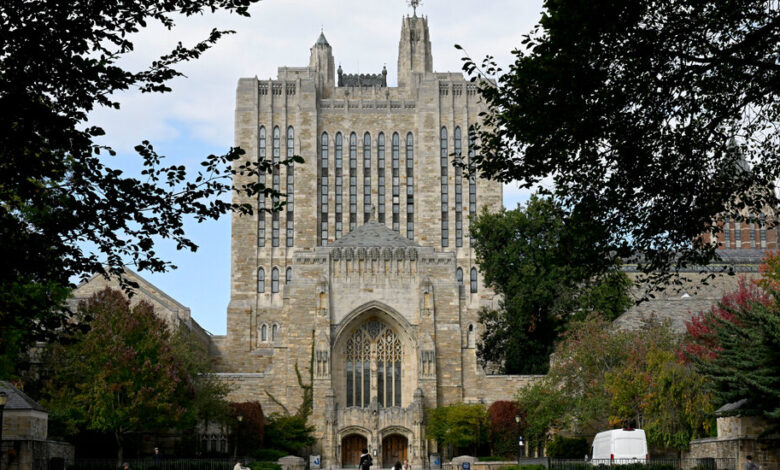Yale’s Endowment Selling Private Equity Stakes as Trump Targets Ivies

The Challenges Faced by Yale University’s Endowment
Yale University’s renowned endowment has been in the spotlight recently due to its efforts to sell off a significant portion of its private equity investments. This move, which involves one of the largest portfolios of private equity assets ever put up for sale in one transaction, highlights the current pressures facing both Wall Street and higher education during the Trump administration.
The Ivy League institution is reportedly looking to offload up to $6 billion in stakes in private equity and venture funds. This decision comes amidst uncertainties surrounding federal funding and the realization that many of these investments have not yielded the expected returns. Sources familiar with the matter have revealed that Yale is nearing the completion of a sale of approximately $3 billion from the portfolio, with the assets being sold at a slight discount.
According to Sandeep Dahiya, a finance professor at Georgetown University, this move signifies a significant shift in Yale’s investment strategy, as the university that was once a key player in the private equity market is now scaling back its involvement.
The Evolution of Yale’s Investment Strategy
Yale has long been recognized for its pioneering approach to investment, particularly its shift away from traditional stocks and bonds towards longer-term holdings managed by private equity and venture capital firms. However, recent performance data shows that Yale’s endowment returns have fallen short of expectations, raising concerns about the effectiveness of its investment approach.
The university’s heavy reliance on private equity and venture capital investments, which make up a significant portion of its endowment, has posed challenges in terms of liquidity and returns. The difficulty in exiting these investments has led Yale to explore the sale of stakes in various firms, including prominent names like Bain Capital and lesser-known entities like Golden Gate Capital.
Yale’s decision to categorize funds as “core” and “sweeteners” in the sales process reflects the complex nature of its investment portfolio. While the university is only offering a slight discount on the private equity stakes, the move underscores the broader challenges faced by the industry.
The Impact of External Factors on Yale’s Endowment
Yale’s sale of private equity assets comes at a critical time for universities, as they navigate changing dynamics in funding and taxation. While Yale has managed to avoid significant funding cuts, it is still grappling with reductions in federal research funding that have implications for its financial sustainability.
The university’s reliance on its endowment for a significant portion of its annual budget highlights the importance of effective investment strategies. Despite the sale of private equity assets, Yale remains committed to the long-term value of such investments and is exploring opportunities to diversify its portfolio.
The discreet nature of the sale, codenamed Project Gatsby, underscores the broader implications of Yale’s decision within the investment community. With other universities and pension funds also considering similar moves, Yale’s actions are seen as a potential indicator of future trends in the industry.





